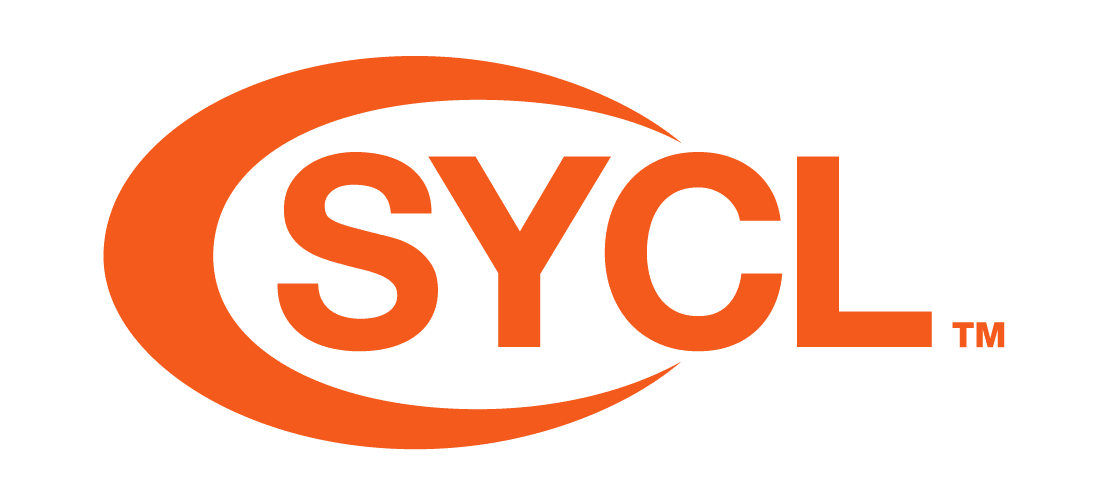Khronos Calls for Participation in New SYCL Safety-Critical Exploratory Forum
Khronos Calls for Participation in New SYCL Safety-Critical Exploratory Forum
Participation is free and open to all working in safety-critical markets such as automotive, avionics, industrial and medical. Join to influence the direction of high-level heterogeneous accelerated computing standards for streamlined safety certification
Beaverton, OR – March 23, 2022 6 AM PT – Today, The Khronos® Group, an open consortium of industry-leading companies creating advanced acceleration interoperability standards, has announced a call for participation in a new exploratory forum to examine the need for an API that leverages the widely adopted SYCL™ standard for safety-critical industries such as automotive, avionics, medical, and industrial markets. The new SYCL SC Exploratory Forum is open to all at no cost, including non-Khronos members, and has been created to gather requirements for a high-level abstraction API for safety-critical heterogeneous computing.
First introduced in 2014, SYCL is a C++ based heterogeneous parallel programming framework for accelerating High-Performance Computing (HPC), machine learning, embedded computing, and compute-intensive desktop applications on a wide range of processor architectures, including CPUs, GPUs, FPGAs, and tensor accelerators. The potential goals of a SYCL SC API would be to adhere to MISRA C++ 202X guidelines and align with safety certification standards such as RTCA DO-178C Level A / EASA ED-12C (avionics), ISO 26262/21448 (automotive), IEC 61508 (industrial), and IEC 62304 (Medical).
SYCL SC would also complement the recently released Khronos Vulkan® SC specification for lower-level access to GPU acceleration for advanced graphics and compute applications.
All participants will be able to discuss use cases and requirements for a unified parallel programming interface for C++ to accelerate market growth. This API would be designed to reduce development and certification costs in safety-critical markets where using the SYCL higher-level programming model could improve programming productivity. If the Exploratory Forum reaches a significant consensus then Khronos will work to initiate a formal Working Group to develop SYCL SC specifications.
Any companies, consortiums, open-source participants, and industry experts who are willing to sign a simple project NDA are welcome to join, at no cost. All participants will have an equal voice in exploring industry needs for, and benefits of, a safety-critical API based on SYCL. The aim of the group is to create a consensus around a Scope of Work (SOW) document describing the objectives and requirements, which would serve as a basis for the creation of a Khronos Working Group tasked with the definition of such a standard.
The forum is open to all proposals and relevant topics but will not discuss detailed technical design contributions to protect participants’ intellectual property (IP). The Exploratory Forum is expected to meet online over a period of several months starting on April 4, 2022. Interested participants should sign the NDA and register their interest here.
Industry leaders such as Codeplay and CoreAVI are spearheading the exploratory forum.
Kenneth Wenger, Senior Director Research & Innovation at CoreAVI and active participant in SYCL and Vulkan Safety-Critical Working Groups says: “We have seen an explosion in Machine Learning and AI solutions over the past decade due in part to the ecosystem of open standard libraries and frameworks that enable engineers to quickly prototype ideas. A key player in this ecosystem, Khronos has developed compute APIs like OpenCL™ and SYCL. Now, as the need increases for safety-critical APIs that can meet application engineers at levels of abstraction that they are familiar with, Khronos members are developing those standards. Vulkan SC facilitates deterministic execution of compute and graphics operations and OpenVX™ provides a safety profile for deploying discrete vision algorithms and Neural Network inferencing. SYCL SC is the next logical step to provide a full stack of SC APIs that can meet each required level of abstraction: Low level compute (Vulkan SC), Computer Vision and NNs (OpenVX), parallel programming interface at a C++ level (SYCL SC)”.
Verena Beckham, VP of Safety Engineering at Codeplay states: “At Codeplay, we believe that the future of technology should be built on open industry standards, especially safety-critical systems. We have led the development of SYCL, the open standard to accelerate AI and HPC applications via heterogeneous computing. Now we look forward to helping do the same for safety-critical software. To make this a success we need to listen to companies developing the next generation of safety-critical hardware and software, to understand their requirements and be able to create the standard they are looking for.”
About Khronos
The Khronos Group is an open, non-profit, member-driven consortium of over 180 industry-leading companies creating advanced, royalty-free, interoperability standards for 3D graphics, augmented and virtual reality, parallel programming, vision acceleration, machine learning, and the metaverse. Khronos activities include 3D Commerce™, ANARI™, glTF™, NNEF™, OpenCL™, OpenGL®, OpenGL® ES, OpenVG™, OpenVX™, OpenXR™, SPIR-V™, SYCL™, Vulkan®, and WebGL™. Khronos members drive the development and evolution of Khronos specifications and are able to accelerate the delivery of cutting-edge platforms and applications through early access to specification drafts and conformance tests.
###
Khronos® and Vulkan® are registered trademarks, and 3D Commerce™, ANARI™, glTF™, KTX™, NNEF™, OpenVG™, OpenVX™, SPIR™, SPIR-V™, SYCL™, and WebGL™ are trademarks of The Khronos Group Inc. OpenXR™ is a trademark owned by The Khronos Group Inc. and is registered as a trademark in China, the European Union, Japan and the United Kingdom. OpenCL™ is a trademark of Apple Inc. and OpenGL® is a registered trademark and the OpenGL ES™ and OpenGL SC™ logos are trademarks of Hewlett Packard Enterprise used under license by Khronos. All other product names, trademarks, and/or company names are used solely for identification and belong to their respective owners.


